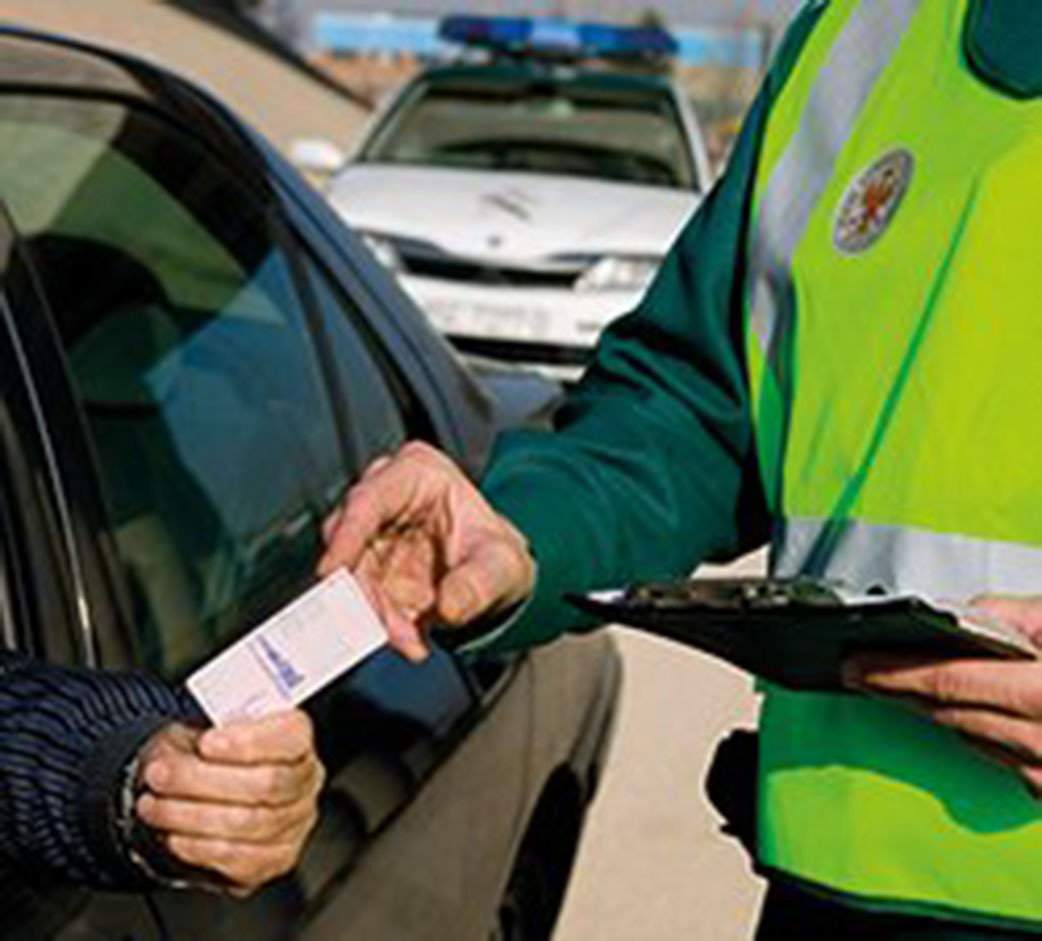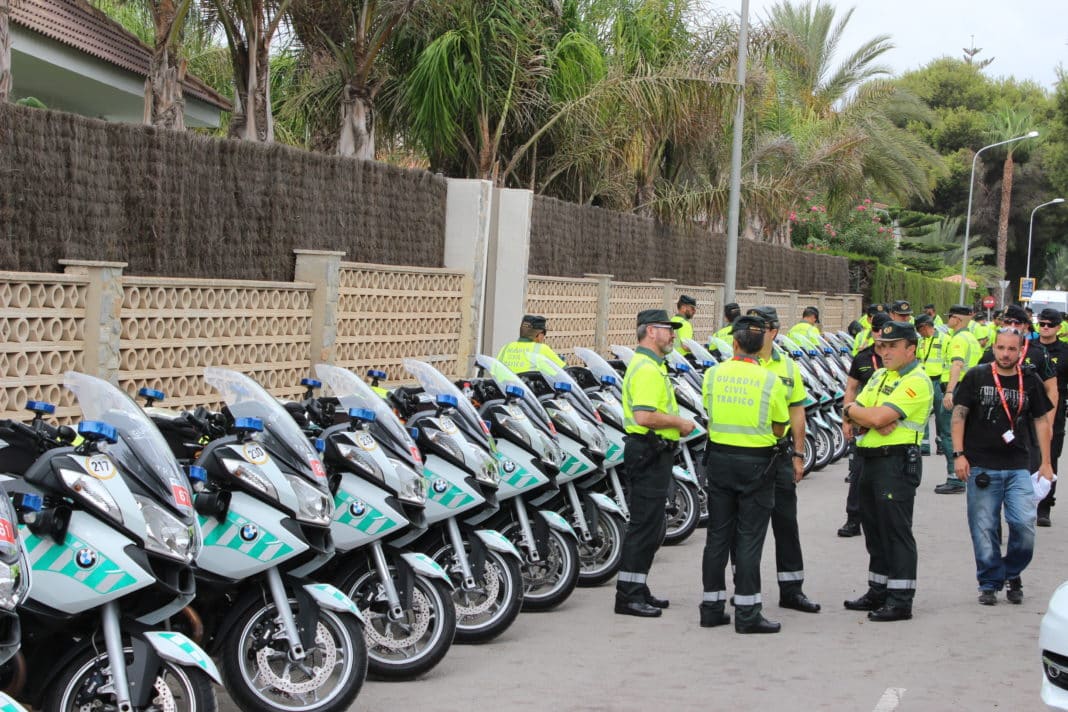Roadside assistance professionals often say that rescues are safer when the Guardia Civil is present.
And those who have suffered an accident or had a breakdown during a trip surely agree. This is the commitment to road safety presumed by those who have formed or are part of the Agrupación de Tráfico de la Guardia Civil (ATGC), whether they are motorcyclists or belong to a police team.
These are the two options offered by the Group to those who choose this specialty of the Guardia Civil, once they have passed the entrance exam, passed the course at the Baeza Guards and Non-Commissioned Officers Academy and a year has passed.
In addition, they must pass another training course – either as motorcyclists or for police officers – at the Mérida Traffic School (Badajoz).
Currently, the ATGC is made up of 8,656 troops, far from the more than 10,000 it had in 2009. “More vehicles, more accidents, more roads and fewer personnel,” says Guardia Civil officer Garzón, a motorcyclist with the Group since 1992.

Those who are part of the ATGC like their work. “It’s gratifying because it’s nice to save lives,” says officer Álvarez, after almost thirty years as a motorcyclist. He says that he feels good when he helps people and sees their grateful face after helping them in a difficult situation.
The most veteran members of the Association still remember that the patrols used to carry a toolbox with which they repaired minor car breakdowns on the same road (at that time, there was no roadside assistance as we know it today).
Roadside assistance is the main task of the ATGC. Every year they carry out more than 200,000 operations of this type. When an accident occurs, they care for the injured (until the medical teams arrive) and order traffic to prevent further accidents.
They work quickly to remove obstacles from the road as soon as possible and minimise the so-called “peeper effect” (driving slower to see what has happened on the road).
However, agent Álvarez admits that the eight hours he spends on the road each working day and the more than 200 kilometres he travels daily (if the day is not extended because something has come up at the last minute) are hard – they have three shifts in which they rotate: morning, afternoon, and night–.
On the one hand, he explains, there is inclement weather (rain, cold, heat, etc., depending on the season of the year).
On the other hand, the danger of the work itself because, as officer Garzón points out: “Everything moves on the road”. “When you stop a vehicle for an infraction, you never know if it is a normal freight transport or if they are criminals who have just robbed a bank and are running away”, he says.
According to what they tell us, another delicate aspect of the work of the components of the ATGC is when they have to go to court to give a statement for a road accident.
These two officers have accumulated many years of service and the occasional funny anecdote. “One day we were doing a breathalyser test. It was 9 in the morning and we stopped a driver who gave 1.1 mg/l, which is a lot for that time of day. When we told him, we were surprised by his response.
He told us that he was the one who had drunk the least, that his companions had ingested even more alcohol”, says officer Álvarez.
However, despite the years and experience, the two agree that the hardest part is dealing with accidents with fatalities or serious injuries. “It’s very difficult to get used to it,” they say.
“When they see us on the road, they stop,” says officer Garzón. Stepping on the brake, dropping the mobile phone they were carrying in our hands or putting on their seat belts in a hurry. That is the instinctive reaction of many drivers when they come across a patrol, either on a motorcycle or in a car.

Because many times when we see them, they think of the fine that we are going to give them if we catch them breaking any of the traffic regulations that guarantee the safety of everyone on the road. In fact, each year they make more than 1.5 million complaints (in 2016, for example, 2.1 million were reached).
In reality, imposing sanctions is only a small part of their work, although, they clarify, this task is also focused on prevention. “Even when we impose a sanction, we also help security because we pay attention to avoid bigger mistakes,” says officer Falgueras.
The ATGC patrols are entrusted with many tasks, in addition to road safety (monitoring the roads and dealing with incidents): speed control with radar, surveillance with drones (teams made up of a pilot from the DGT and a camera operator from the Guardia Civil, plus the patrol that is notified to stop the offender and notify the infraction) and surveillance of heavy vehicles (trucks and buses, which are requested, for example, documentation, transport authorisation, etc. and their tachograph is checked –with rest and driving times–, wheels, belts, etc.).
Alcohol and drug controls are also common for ATGC patrols (they do not usually last more than an hour at each point because their location spreads very quickly through social networks and they lose effectiveness). In 2020, for example, more than 3.1 million alcohol tests (with more than 26,000 complaints) and almost 50,000 drug tests (about 17,000 complaints) were carried out.
If in that control, any driver tests positive for alcohol and/or other drugs, the vehicle is immobilised –if another occupant cannot drive it–. In addition, in these controls other irregularities are usually detected, such as, for example, carrying the load incorrectly (without separation from the passengers, something that, in the event of sudden braking, can cause the death of any of them), poor state of tyres, an expired driver’s licence, etc.
Work at the ATGC changed radically during the pandemic and lockdown. The controls on the road became “Covid controls”, that is, preventing people from moving from one place to another. However, in the ATGC, they admit that, in general, “people behaved quite well, respecting the limitations on mobility that were imposed” , acknowledges officer Garzón.





